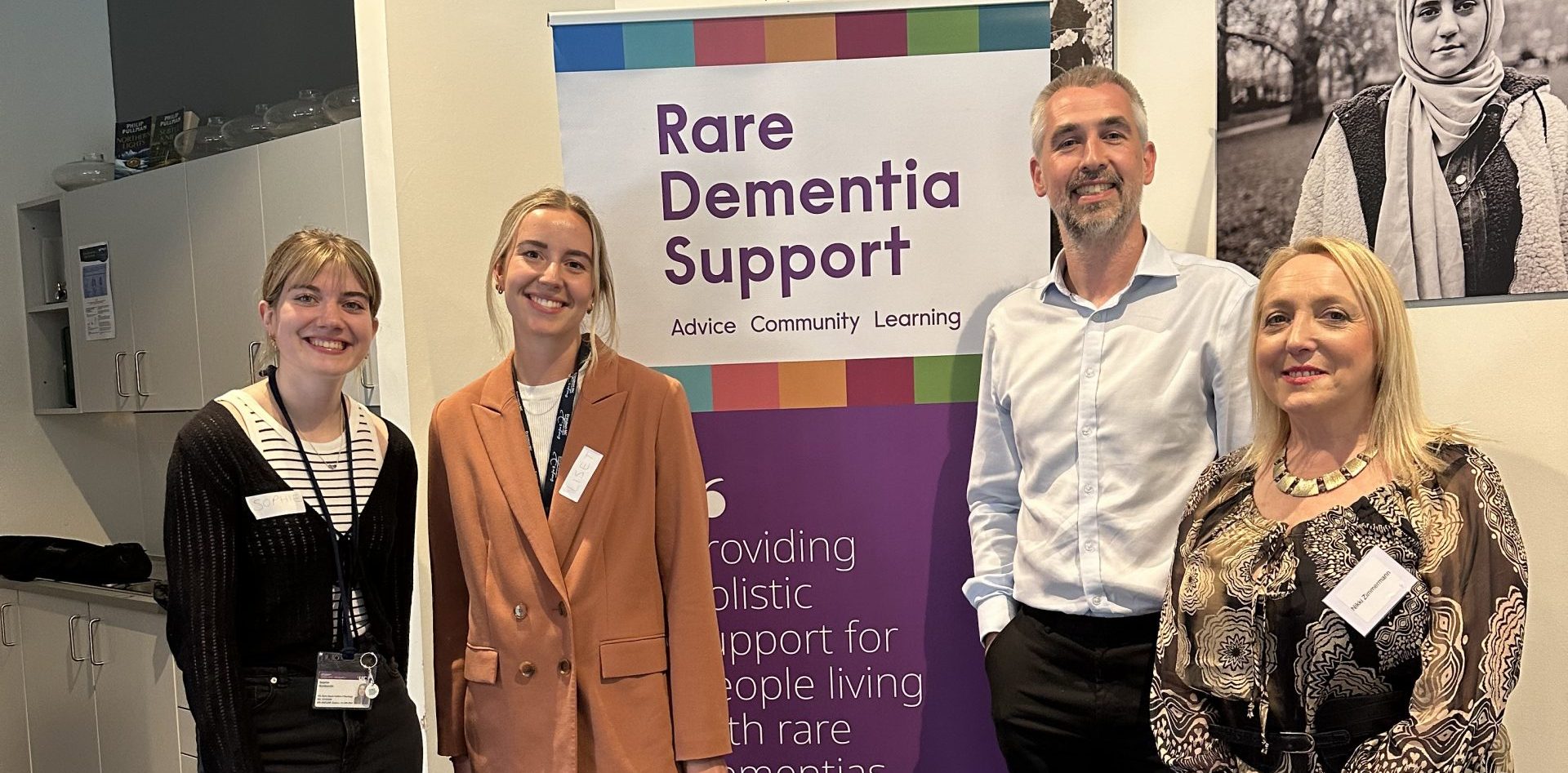Every year, alongside Nikki Zimmerman and the Rare Dementia Support (RDS) team, we organise a support group meeting for families living with familial frontotemporal dementia (fFTD). This is a fantastic opportunity for family members to discuss their experiences, and a great way for researchers to share their current work.
This year’s meeting was held in the Story Studio, Coram, just around the corner from the National Hospital for Neurology and Neurosurgery in Bloomsbury, London. We kicked off the day with a talk from Sophie Goldsmith, a PhD student in the Wray Lab at UCL, who spoke about her PhD project, ‘Building “mini brains” in a dish to study progranulin-associated frontotemporal dementia’. We heard about how these “mini brains” can be used to help us understand the biological processes underlying disease and hopefully be used to test potential drugs in the future.
Sophie Goldsmith, a PhD student in the Wray Lab at UCL, who spoke about her PhD project, ‘Building “mini brains” in a dish to study progranulin-associated frontotemporal dementia’. We heard about how these “mini brains” can be used to help us understand the biological processes underlying disease and hopefully be used to test potential drugs in the future.
Liset de Boer, a visiting PhD student from Rotterdam, gave a fantastic talk about how we use eye-tracking in GENFI. She discussed how we can precisely track participants’ eye movements whilst they complete a variety of tasks on a tablet. We can then use these recordings to show us where participants spent the most time looking on the screen, which gives us an insight into several cognitive functions, in particular social cognition, which is often altered in FTD. We learnt about the benefits of eye-tracking over standard pen-and-paper neuropsychological tests and how researchers will be integrating more technology into research going forward.
After a lovely lunch break where families had the chance to catch up with one another over some delicious food, it was time for the afternoon session. Ollie Hayes and Sam Rossi-Harries, from the RDS team, talked through the newly developed psychological intervention, “Improving Wellbeing in At Risk FTD” (IWARF). This study, which is currently in its pilot stage here at UCL, is a psychological support programme specifically designed for those living at-risk of familial FTD. They spoke about the feedback they had already received from participants who had taken part in the pilot study, and this led to a fantastic discussion with the audience members about what they thought should be included in the programme going forward.
This was followed by the ‘Members Experience’ talk which focused on the peer support group for people who know they carry a gene mutation. Two group members told us about what this group means to them and how it has been a safe space to be able to openly talk about their feelings and experiences with others who are in a similar position to them. This session really highlighted the incredibly important work Nikki Zimmerman and her team and doing to create a fantastic network of support.
The day was topped off with a Q&A session with Professor Jon Rohrer.
A recording of this meeting will be uploaded to the Rare Dementia Support YouTube Channel in the coming weeks. If you would like to hear more about any of the research, support groups or the IWARF study, please do get in touch with our team at genfi@ucl.ac.uk.
Sign up to become an RDS member for more information about upcoming meetings via this link: https://www.raredementiasupport.org/become-a-member/.
Sophie Goldsmith, on behalf of the FTD talk team.
Keep up to date on all things research by following us on twitter – @FTDtalk / @GENFI1

